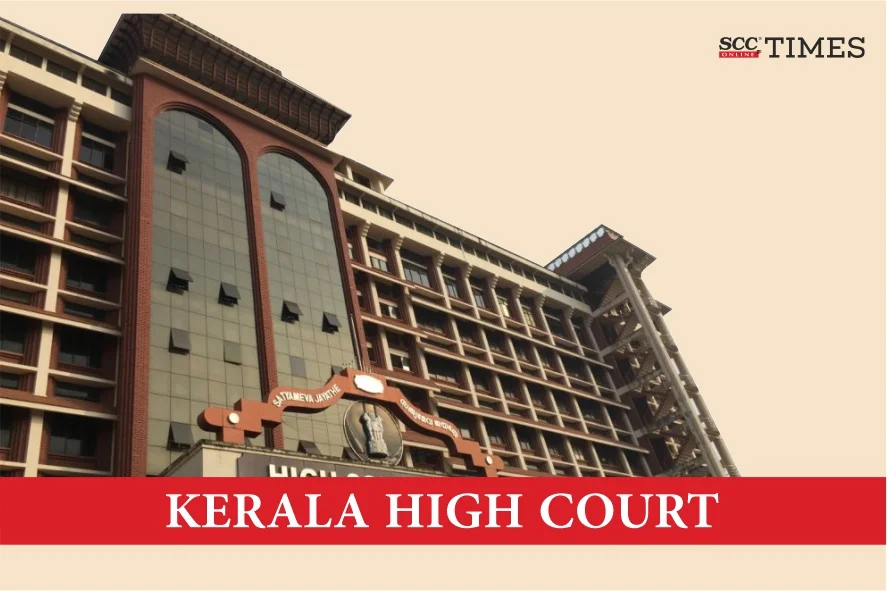Kerala High Court: In a writ petition filed by Principal, MSM College seeking to direct the University of Kerala to approve his appointment, the Single Judge Bench of N. Nagaresh, J. held that a Public Information Officer was not legally empowered or obligated under Section 7 of the Right to Information Act, 2005, to initiate an investigation in the absence of a specific complaint or authority to do so. The Court observed that since the petitioner was not the competent officer to address the complaint and no specific allegation regarding a forged document had been received, the PIO had no duty to investigate the matter.
Accordingly, the Court directed the University of Kerala to confirm the provisional approval of the petitioner’s appointment, as granted by the University’s order dated 03-06-2024.
Background
The petitioner stated that a vacancy for the post of Principal arose on 01-06-2022, and a duly constituted Selection Committee, including University nominees, selected the petitioner for the position. The petitioner was appointed as Principal via letter and a proposal for approval was sent to the University on 09-11-2023. Prior to this, the petitioner had been appointed as Drawing and Disbursing Officer (‘DDO’) with effect from 01-09-2023.
A controversy later arose regarding the admission of a student. The petitioner, serving as Public Information Officer at the time, received an RTI application seeking information about the student’s degree certificate. The petitioner informed the applicant that the genuineness of the certificate had to be verified by Kalinga University.
As the information sought under subsequent RTI applications was third-party information, the petitioner followed due process under Section 11 of the RTI Act and denied disclosure based on the student’s refusal to provide consent.
It was subsequently found that the degree certificate from Kalinga University was fake. The petitioner contended that the student was admitted on 28-01-2022 when another individual was Principal, and the petitioner had no role in the admission process. Despite this, a show-cause notice dated 05-09-2023 was issued to the petitioner, who submitted a detailed reply on 16-09-2023.
Thereafter, the University decided to withdraw its approval of the petitioner as Principal-in-Charge and issued a letter to initiate disciplinary action. The petitioner challenged this on the ground that he was never formally appointed as Principal-in-Charge and had been selected as Principal through a proper process on 07-11-2023. The withdrawal of approval was alleged to be arbitrary and motivated by an intent to obstruct the petitioner’s appointment.
Upon admission of the writ petition, the High Court passed an interim order directing that the petitioner be permitted to continue as Principal provisionally, subject to the outcome of the writ petition.
Analysis and Decision
The Court noted that there was no dispute regarding the petitioner’s appointment as Principal of the College, which had been made following a due selection process. It was observed that, at the time when the petitioner was serving as the Public Information Officer and received RTI applications, he had acted in accordance with the provisions of the Right to Information Act, 2005. There was no negligence or default on the part of the petitioner in processing or disposing of the RTI applications. The allegation made was that the petitioner ought to have investigated the issues raised in the RTI applications. However, the Court held that since the petitioner was not the competent authority to deal with such complaints, and no specific complaint alleging submission of forged documents had been received, the petitioner was under no legal obligation to initiate an investigation.
It further held that a Public Information Officer neither had the power nor the duty to conduct an inquiry under Section 7 of the Right to Information Act, 2005.
The Court said that even if it were to assume some degree of negligence on the part of the petitioner, an isolated instance of such alleged negligence could not be a valid ground to deny approval of the petitioner’s appointment as Principal, especially when the appointment had been made following a due selection process.
The Court noted that a statement filed by the University indicated that, pursuant to the interim order of the Court, the University had issued an order dated 03-06-2024 granting provisional approval to the petitioner’s appointment as Principal.
In light of the facts and circumstances of the case, the writ petition was disposed of with a direction to the University to confirm the provisional approval of appointment granted to the petitioner as per the University’s order dated 03-06-2024.
[Dr Muhammed Thaha v. The Director of Collegiate Education, 2025 SCC OnLine Ker 3301, decided on 13-05-2025]
Advocates who appeared in this case :
For Petitioner: ADVS. NISHA GEORGE GEORGE POONTHOTTAM (SR.) A.L. NAVANEETH KRISHNAN
For Respondent: ADV. SRI. THOMAS ABRAHAM, STANDING COUNSEL


